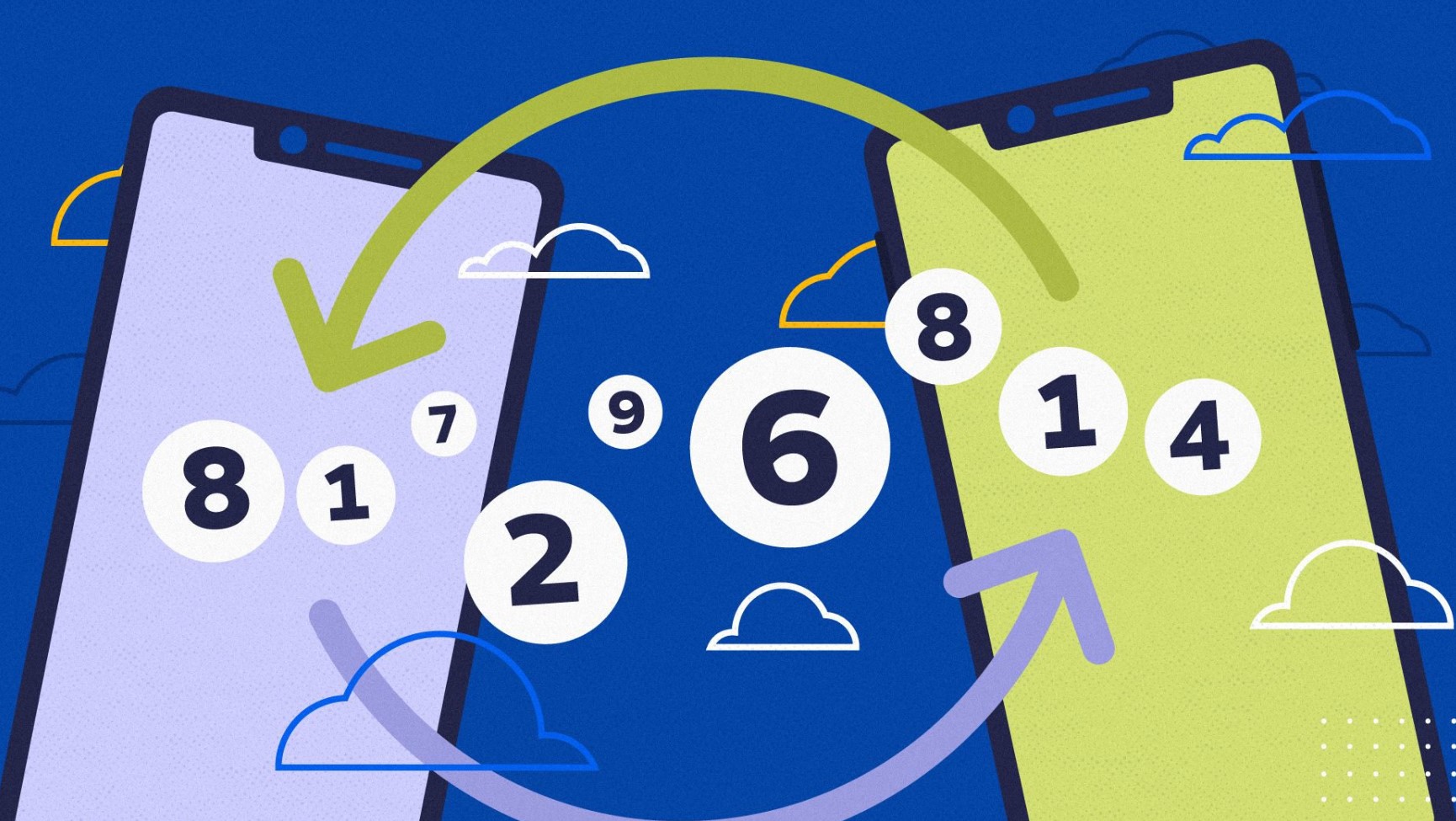Business phone number play a crucial role in establishing communication channels with customers, clients, and business partners. When setting up a new business or considering a change in phone service, one important decision to make is whether to buy a new phone number or port an existing one. In this article, we will explore the pros and cons of buying and porting business phone numbers, helping you make an informed choice for your business.
What is buying a business phone number?
Buying a business phone number involves obtaining a new phone number from a service provider. These numbers can be selected based on availability or customized according to specific requirements. Buying a business phone number offers several benefits for businesses of all sizes.
Benefits of buying a business phone number
- Flexibility and control: By purchasing a new business phone number, you have the flexibility to choose the number that aligns with your branding or marketing strategy. You can select a memorable number, a vanity number, or even a toll-free number, providing a professional and memorable experience for your customers.
- Easy setup process: Buying a business phone number typically involves a straightforward setup process. Service providers offer user-friendly interfaces and online platforms that allow you to set up and configure your number quickly, ensuring minimal downtime for your business.
- Availability of vanity numbers: Vanity numbers, which use easily recognizable letter combinations associated with your business or industry, can be an excellent branding tool. Buying a business phone number provides the opportunity to secure a vanity number that strengthens your brand identity and helps customers remember your contact information.
What is porting a business phone number?
Porting a business phone number refers to the process of transferring an existing phone number from one service provider to another. This option is suitable for businesses that wish to maintain their current number while switching to a new phone service.
Benefits of porting a business phone number
- Maintaining existing number: Porting a business phone number allows you to keep the same contact information that your customers are familiar with. This helps maintain brand consistency and ensures a seamless transition without disrupting ongoing communication.
- Seamless transition: When you port a business phone number, there is no need for your customers to update their contact lists or business directories. By retaining the existing number, you can continue to serve your customers without any interruption, ensuring a smooth transition.
- Cost savings: For established businesses with an established customer base, porting a business phone number can lead to significant cost savings. By avoiding the need to reprint marketing materials, update online listings, or inform customers of a new number, you can minimize expenses associated with rebranding efforts.
Pros of buying a business phone number
While both options have their merits, let’s delve into the advantages of buying a business phone number specifically.
| 1 | Customization options | Buying a business phone number provides the opportunity to customize the number to align with your business requirements. You can choose a number that is easy to remember, such as one with repeating digits or a pattern that reflects your brand. This level of customization helps create a strong impression and makes it easier for customers to recall your contact details. |
| 2 | Availability of toll-free numbers | Toll-free numbers are popular among businesses as they allow customers to call without incurring any charges. By purchasing a business phone number, you have the option to obtain a toll-free number that can enhance customer satisfaction and encourage inquiries and sales. Toll-free numbers are often associated with professionalism and trustworthiness. |
| 3 | Avoiding hassle of porting process | By opting to buy a business phone number, you can avoid the complexities and potential technical issues associated with the porting process. Porting a number requires coordination between service providers, and there may be instances of delays or errors. Buying a new number eliminates these concerns and provides a fresh start for your business communications. |
Cons of buying a business phone number
While buying a business phone number has its advantages, there are some drawbacks to consider.
| 1 | Limited availability of desired numbers | Depending on the service provider and the demand for specific numbers, you may find that your desired number is already taken. This can be especially challenging if you have a specific number in mind that aligns with your brand or marketing strategy. Limited availability may require you to compromise on your preferred number or explore alternative options. |
| 2 | Potential for higher costs in the long run | While the initial cost of buying a business phone number may be relatively low, there could be potential long-term expenses to consider. Some service providers charge additional fees for advanced features, such as call routing, voicemail transcription, or integration with other business tools. It is essential to evaluate the ongoing costs associated with maintaining the purchased number before making a decision. |
Pros of porting a business phone number
Porting a business phone number offers unique advantages that may be beneficial for certain businesses.
· Maintaining brand consistency
For businesses with an established brand and customer base, maintaining brand consistency is crucial. Porting a business phone number ensures that your customers can reach you using the same contact information they are familiar with. This consistency helps instill trust and confidence in your customers, reinforcing the reliability and professionalism of your business.
· No disruption to customer communication
Porting a business phone number eliminates the need for customers to update their contact information or adapt to a new number. This continuity in communication ensures that your customers can reach you without any disruption, minimizing any potential negative impact on your business operations.
· Cost savings for established businesses
For businesses with a substantial customer base and ongoing marketing efforts, porting a business phone number can result in cost savings. Rebranding and updating contact information can be an expensive endeavor, involving changes to business cards, websites, advertisements, and more. By porting your existing number, you can avoid these expenses and allocate resources to other areas of your business.
Cons of porting a business phone number
While porting a business phone number offers advantages, there are certain considerations to keep in mind.
· Complexity of porting process
Porting a business phone number involves coordination between your current service provider and the new one. The process can be complex, requiring paperwork, coordination, and potentially technical troubleshooting. It is essential to be prepared for the potential challenges and delays that can arise during the porting process.
· Potential for technical issues
During the porting process, there is a possibility of encountering technical issues that can disrupt communication temporarily. These issues can include service interruptions, call quality problems, or compatibility issues with your existing phone system. It is crucial to work closely with both your current and new service providers to mitigate potential technical challenges.
· Limited porting options
Porting a business phone number may not always be feasible or available with every service provider. Some providers may have restrictions on porting certain types of numbers, such as international numbers or numbers from specific regions. It is essential to verify the porting options available to you before making a decision.
Factors to consider when deciding between buying and porting
To make an informed decision between buying and porting a business phone number, consider the following factors:
Factor 1: Business size and scalability
If you are a small or newly established business, buying a new phone number may be a suitable option. It allows you to choose a number that aligns with your branding and marketing strategy while offering flexibility for future growth. On the other hand, porting a business phone number may be more beneficial for established businesses with a significant customer base and brand recognition.
Factor 2: Brand recognition and customer familiarity
If your business heavily relies on brand recognition and customer familiarity, porting a business phone number can be a preferred choice. It ensures a seamless transition for your customers, preventing any confusion or loss of contact. However, if brand recognition is not a primary concern, buying a new number provides an opportunity to create a fresh and memorable impression.
Factor 3: Long-term plans and goals
Consider your long-term plans and goals for your business. If you anticipate significant growth or expansion, buying a business phone number offers more flexibility. You can easily add additional numbers or lines as your business expands. Conversely, if you have established long-term relationships with customers and partners and plan to maintain your current brand identity, porting a business phone number ensures continuity.
Factor 4: Budget considerations
Evaluate your budget and the associated costs of buying or porting a business phone number. Buying a new number may have lower upfront costs, but ongoing expenses for advanced features or services can add up. Porting a business phone number may involve one-time porting fees but can result in long-term cost savings by avoiding rebranding expenses.

